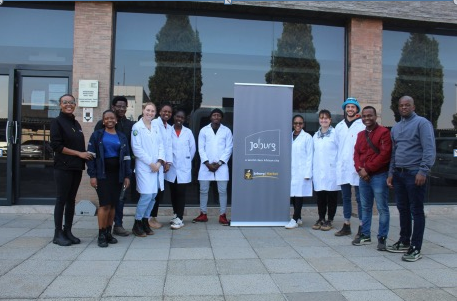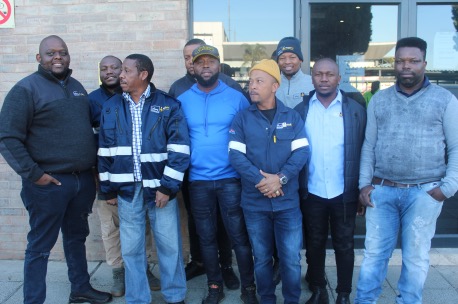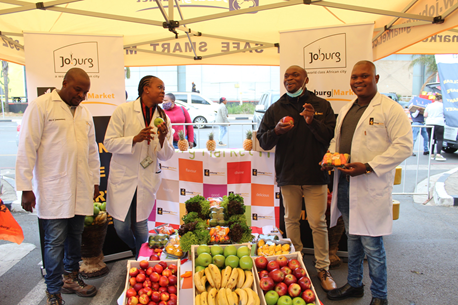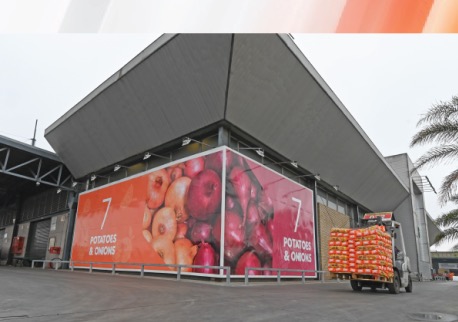By Nonhlanhla Mbonambi
Students from the University of Johannesburg’s Botany and Plant Biotechnology department recently participated in a comprehensive tour of the Joburg Market. The tour provided the students with a deeper understanding of the market’s operations, from the entry of produce to its final distribution.
The students’ visit began at the vegetable hall, where they were introduced to various key areas, including the cold rooms, banana ripening facility, consignment control, and the Quality Assurance lab. Throughout the tour, they gained insights into the market’s value chain, learning how raw produce from farmers is meticulously tested in the lab to ensure it meets safety standards for human consumption.
In addition to learning about the lab’s role, the students were briefed on the consignment control process, which involves the inspection of incoming stock. They also explored the role of market agents who sell on behalf of farmers and followed the journey of produce from its arrival at the market to its destination in the trading halls.
Bongani Gambu, Acting Lab Supervisor at Joburg Market, provided students with an overview of the lab’s functions, emphasising the critical role of the Pesticide Residue Testing programme.
“The Pesticide Residue Testing programme monitors farmers’ use of pesticides on produce supplied to Joburg Market. Our Food Quality Assurance (FQA) department then communicates the test results to farmers, advising them on the implementation of good agricultural practices to ensure the production of safe food,” said Gambu.
The department offers comprehensive services, including food inspections, monitoring product temperatures to maintain the cold chain, conducting laboratory analyses, and providing farmers and food suppliers with guidance to ensure food compliance.
Sbulelo Mwelase, a botany lecturer at UJ, highlighted the relevance of the tour to their academic work.
“The aspects we explored during the market tour are closely aligned with what we teach our students daily. We also have a centre for agro-processing, which serves as a lab to assist emerging farmers. One challenge we face is educating farmers about the handling of fresh produce, which, similar to living organisms, requires proper care,” said Mwelase.
He stressed the importance of educating farmers, particularly those involved in the physiology sector, to ensure they are well informed about the agricultural sector and understand the significance of proper plant care.
This comprehensive knowledge will be crucial for the student’s research assignments focusing on pre-harvest and post-harvest processing.




